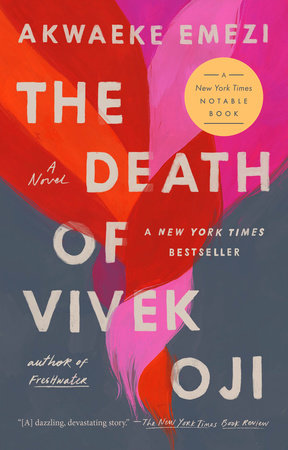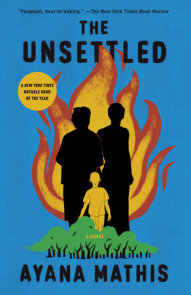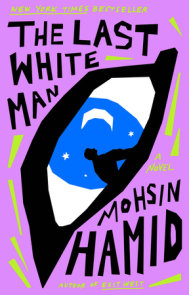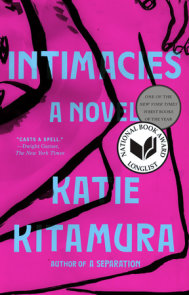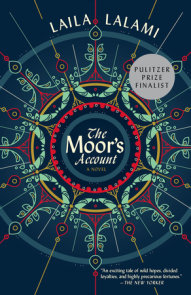READERS GUIDE
Questions and Topics for Discussion
1. “They burned down the market on the day Vivek Oji died.” The novel begins in the aftermath of Vivek Oji’s death, despite his being the titular character. How did knowing that Vivek has already died shape your reading experience? What is suggested by framing the book in this way?
2. In the second chapter, the narrator tells us that this story could be told through a stack of photographs. Near the end of the book, Osita and the girls visit Kavita with a stack of photographs to tell Vivek’s story. How are these stacks of photographs connected? Did you draw any meaning from the use of photographs, as opposed to words or physical mementos?
3. As Vivek grows more uncomfortable with his family at home, he finds solace with the daughters of the Nigerwives. What actions do the girls take to make Vivek feel comfortable and secure? If a biological family is unable to accept a child, can friendships be a sufficient replacement?
4. When the boys are in school, Osita does not comprehend Vivek’s fugue states, and these ultimately lead to the cousins’ falling-out. How did you interpret Vivek’s fugues? Could Osita have dealt with these and his relationship with Vivek better, or is he excused because of his age? Were you surprised when Osita and Vivek become intimate later? How does their relationship change in the intervening years?
5. After Vivek’s death, Kavita is very concerned with finding his Ganesh necklace, and at the end of the book, it is the one item of Vivek’s that Osita keeps. What does the necklace represent about Vivek’s identity and ancestry? What does it mean that he wore it until the end of his life, despite the alterations he made to his appearance?
6. When she was younger, Juju expressed skepticism about the community the Nigerwives had built around their shared identity, but when she is older she falls into easy community with Vivek, Osita, and the girls. What is most important in building a group of friends? How does the Nigerwives’ shared identity as outsiders bring them together despite their individual differences?
7. After Vivek’s death, Osita, Kavita, Chika, and Juju all cope with their grief differently—by running away to party, by pushing for answers, by hiding in bed, or by falling silent. How do these varied responses pull them apart, and how are they ultimately able to push past these tensions?
8. When they were younger, Osita and Elizabeth were an item, and later Osita is with Vivek and Elizabeth is with Juju. Vivek and Juju share a kiss, and after Vivek’s death, Osita and Juju sleep together. What did you make of the many ways the friends are enmeshed? How does the author present a wide spectrum of expressing feeling and affection through physical touch?
9. In the chapter featuring Ebenezer, we learn of a girl with long hair who previously walked through the market and whom Ebenezer sees arguing on the day of the riots. Did you have any sense in that moment that the girl was Vivek, and if so, what made you think that? If not, when did it become clear? In what way did this method of storytelling inform your ideas of how Vivek presented and how acceptable it was to others?
10. “You keep talking as if he belonged to you, just because you were his mother, but he didn’t. He didn’t belong to anybody but himself,” Somto tells Kavita when the group of friends goes to visit her. Do you think Somto is right in saying this about Kavita, and if so, is she right to bring it up then? How does possessiveness play into our relationships with the dead? How about our relationship with our friends?
11. After meeting with the “children,” Kavita decides that Vivek’s gravestone should display the other name he was going by, Nnemdi. Does this prove Kavita’s acceptance of Vivek, even if it comes too late? How did this shape your understanding of Vivek’s identity? Did the connection between Ahunna and Vivek resonate with your beliefs on family, inheritance, and reincarnation?
12. At the end of the book, we learn that Vivek died after fighting with Osita, not at the hands of rioting strangers. Were you surprised by this final reveal? Do you agree with Osita that Vivek would have stayed safe and alive if only he had kept his dresses within the “bubble” of Juju’s room? How does this last bit of information shape your feelings about Osita and your ideas of whom Vivek was most under threat from?






